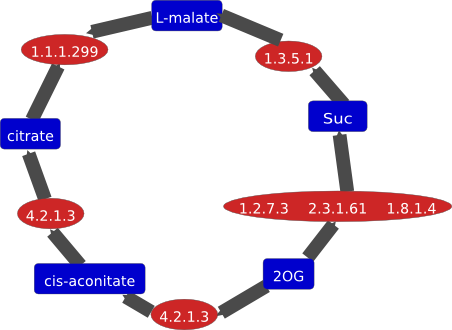EC Number   |
Application   |
Reference   |
|---|
    4.1.1.45 4.1.1.45 | drug development |
inhibition of alpha-amino-beta-carboxymuconate-epsilon-semialdehyde decarboxylase should be explored as a possible novel therapeutic avenue for the treatment of diabetes |
703670 |
    4.1.1.45 4.1.1.45 | medicine |
during the metabolism of tryptophan, ACMSD is able to influence directly the production of quinolinate, a potent endogenous excitotoxin, have roles in the pathogenesiof epilepsy, Huntington's disease, Alzheimer's disease and demetia resulting from AIDS, and picolinate which may influence the immune system in macrophages and apoptosis in human leukaemia cell lines |
-, 649725 |
    4.1.1.45 4.1.1.45 | medicine |
increased quinolic acid levels may result from reduced activity of ACMSD in suicidal subjects. Suicide attempters have reduced picolinic acid levels and a decreased picolinic acid/quinolinic acid ratio in both cerebrospinal fluid and blood. The minor C allele of the ACMSD SNP rs2121337 is more prevalent in suicide attempters and associated with increased cerebrospinal quinolinic acid level |
749404 |
    4.1.1.45 4.1.1.45 | medicine |
quinolinate, non-enzymatically derived from 2-amino-3-(3-oxoprop-2-enyl)-but-2-enedioate is a potent endogenous excitotoxin of neuronal cells, whose elevation in brain is implicated in the pathogenesis of various neurodegenerative disorders, ACMSD is the only known enzyme that can process ACMS to a benign catabolite and thus prevent the accumulation of quinolinate |
-, 652302 |
    4.1.1.45 4.1.1.45 | medicine |
the enzyme is an therapeutic target for treating disorders associated with increased levels of tryptophan metabolites |
679800 |





